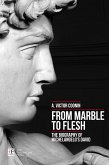PREFACE In the following pages an attempt has been made to enable students to grasp the main points of the contents of one of the most important philological works which have been published during the last ten or twenty years—Paul’s ‘Principien der Sprachgeschichte.’ With this object in view, that work has been here, with more or less freedom, as the subject seemed to demand, rewritten. Though a translation of Professor Paul’s book has been published by one of the authors, it has been felt that the existence of that translation did not render a work like the present superfluous, nor should a student whose interest has been awakened by the reading of these pages consider he can dispense with studying what Paul has written in his great work. It may be best to state in how far this and Professor Paul’s book are alike, as well as in what points they differ. We have closely followed Paul in his division of the subject. Our chapters correspond in number, order, and subject with those of Paul. The views set forth in our pages are in the main those of Paul; the vi arguments are mostly his, even in the very few cases (such as the question of the consistency and nature of the laws of sound-change) where the authors might feel inclined to differ from Paul’s views. Also the order in which the various points in each chapter are discussed has been generally preserved. On the other hand, we have altered much, as we hope, in the interest of our readers. Professor Paul wrote for Germans in the first place, and secondly for such students as were able to read books like his in the original, i.e. for those who not only knew German enough to feel all the weight and import of his German examples, but who also, like most German students, could be assumed to possess a sufficiently intelligent interest in the history of the German language to appreciate quotations of its older forms (a point which Englishmen have unfortunately too much neglected), and who, thirdly, might be expected to be sufficiently familiar with at least some of the other languages from which he drew his quotations.
Bitte wählen Sie Ihr Anliegen aus.
Rechnungen
Retourenschein anfordern
Bestellstatus
Storno









